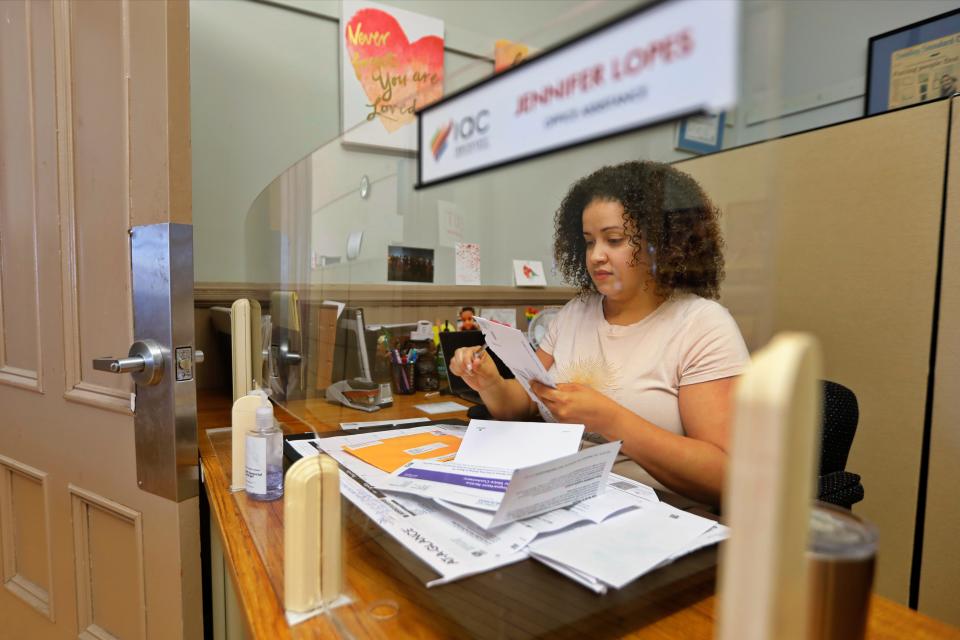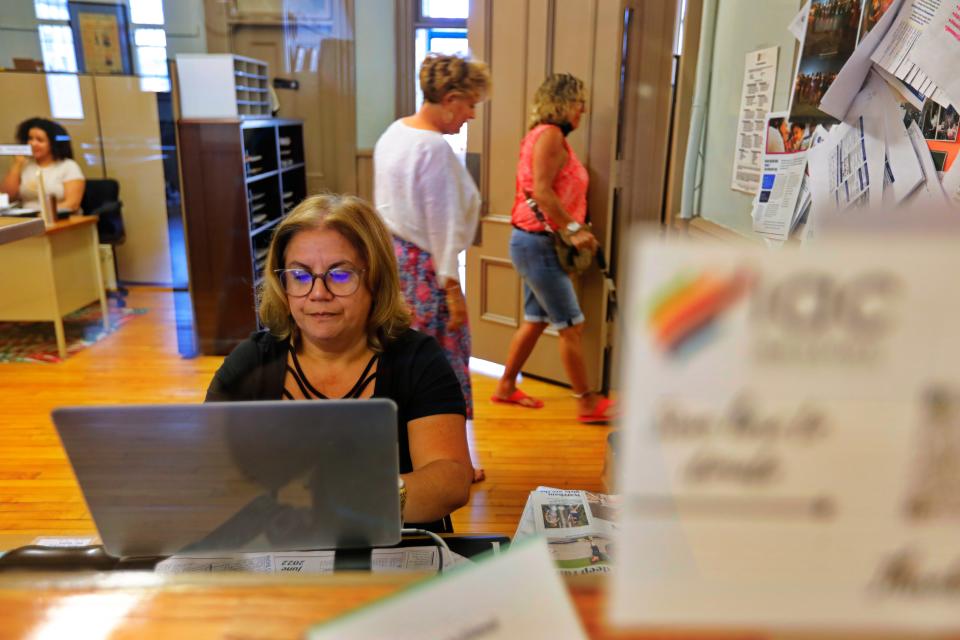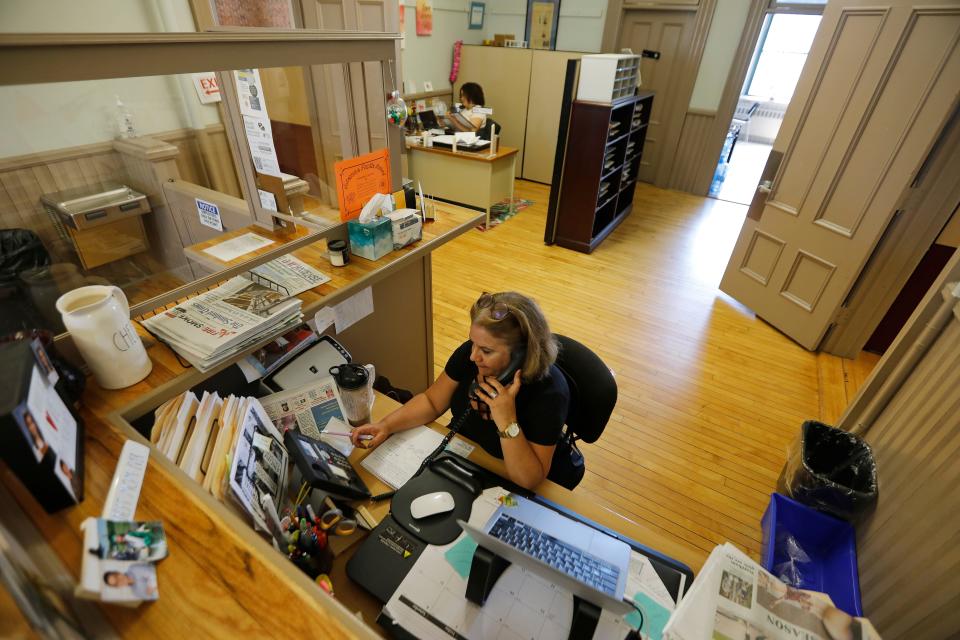'People can't afford their rents': The housing crisis impacts SouthCoast immigrants
NEW BEDFORD — Staff at the Immigrants Assistance Center say there is one issue dominating conversations with those seeking their help this year.
"Housing," Jennifer Lopes, an office assistant at IAC, said.
"Housing is a big, big issue," added Delia Moreira, the organization's office coordinator.
Massive increase
Though a statewide moratorium on evictions associated with the COVID pandemic ended in October 2020, a federal one brought forth by the Centers for Disease Control and Management remained in place until August.
Rental relief: Renters, social services brace for a wave of potential evictions as moratorium expires
It was around then the two office workers said they started to notice an uptick in requests for help.

"People can't afford their rents," Moreira said. "I had clients who told me: I have to pick between my medications. Between food. Between my rent."
"When people were at home getting the extra [COVID relief] money," Lopes said, "it was okay. Then after that it just went downhill."
Property Transfers:Two New Bedford condos' sale prices illustrate huge jump in market
The center's numbers bear that out. In 2021, they received 14 calls for assistance related to housing.
In 2022 so far, that number has already hit 31. That number is greater than the number of calls for the entirety of each year respectively from 2018 through 2021.
The vast majority of those calls related to an inability to pay exponentially increased rental rates.

"The rent's going up," Lopes said.
The pair relayed stories of people who said their rent more than doubled after a home sale over the course of three months.
Moreira recalled one case where the biological after effects of COVID affected one client, a 50-year-old Cabo Verdean woman living with her three children and one grandchild.
The condition left her unable to make rent.
"She started the phone call crying," Moreira said. "She said: I work as much as I can. I was hit with COVID. I am never the same person and I just work wherever I can. And she was like doing her math."
Real estate market: This Dartmouth home was designed by the architect of the original Breakers.

Undocumented hit hardest
According to the colleagues, if there was one group hit hardest among their clientele, it would be the undocumented, of which IAC estimates there are around 10,000 in New Bedford.
"They don't have all these services like food stamps, fuel assistance," Lopes said. "They can't get those because you need to have a social security number."
Federal law prohibits those without legal status in the country from accessing most social services, including SNAP and TANF benefits.
Yet IAC director Helena DaSilva Hughes said a grant from the SouthCoast Community Foundation enabled them to give about $300,000 worth of rental and utility assistance since 2020.
According to the center, they have helped 397 families — regardless of residency status — with that money since; though that money is now gone.
Otherwise, most of the aid IAC has been able to give to has been in the form of gift cards to help purchase essentials and utility payments.
"It was like we needed more and more and more [money]," Moreira said. "That grant just, like, flew."
In the meantime though, all the pair said they can do is help where they can as their clients focus on survival.
"They're thinking about the now," Moreira said.
Contact Kevin G. Andrade at kandrade@s-t.com and follow him on Twitter: @KevinGAndrade. Support local journalism and subscribe to the Standard-Times today!
This article originally appeared on Standard-Times: IAC bears witness to effects of NB housing crisis on immigrants

